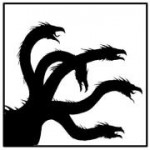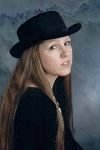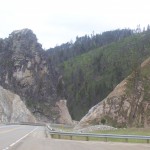Thanks for being with us today. First, would you tell us a bit about yourself? What area of the country do you live in, do you have a family, pets, etc. Are you a coffee fiend, or do you have another “addiction” you must have on your desk at all times? What’s your education, if it’s relevant to your writing, and how does that education help you/or do you find that you can write well even without the diploma others might think they must have?
Well, my name is Edward Eaton. Call me Ted, please. I have just published a young adult book titled Rosis’ Castle. In my real life, I am an itinerant college teacher. I teach, English, Theatre, and History. I have taught other subjects as well. Philosophy was fun. Psychology was not. My degrees are in Theatre, but I learned quickly that every student in the United States is required to take English Comp. Few are required to take Intro to Theatre. I would rather teach English than not teach Theatre. If you want more information about that, check out my website: www.edwardeaton.com
I live in Boston. I grew up in West Virginia, was born in North Carolina, and come from generations of southerners. I consider myself a southerner. I certainly do not consider myself a Yankee. Of course, in Boston, ‘Yankee’ is considered a swear word, so I fit right in.
I have a wife. Silviya is a hospital administrator. I have a son. Christopher is seven and a nut, but I like him. Silviya is one of my best readers. She is supportive, yet critical. She will not let me get away from plot holes. Nor will she let me get away with overly casual language or linguistic or grammatical shortcuts (it helps that she is not a native English speaker).
My biggest problem as a writer is that I am easily distracted. I can listen to music when I am plotting and working out issues in my head, but I cannot when I am drafting. I cannot write with the TV on. I watched an episode of The Simpsons recently in which Lisa decides to write a book. She spends all of her time straightening her desk, buying lattes, and sharpening her pencils—and gets no writing done. That is me. I have to treat writing like a job. I have to get rid of all the distractions and write. If I can do that, I write fairly quickly. I am at the point that I am trying not to read anything new so that I do not get too caught up with a story and avoid writing. This, of course, allows me to reread some of my favorites. Recently, I reread Herman Wouk’s Winds of War and War and Remembrance. I just started, for the umpteenth time, The Lord of the Rings.
My education: My BA, from the University of Richmond, a good southern school, was in directing and playwriting. My MA and PhD, Bowling Green State University, are in Theatre History and Literature. Janet, my editor, keeps reminding me that I am not writing a play, but a novel. I want to set the scene and give exposition in dialogue. Some of Shakespeare’s most famous scenes are in the plays to establish something fairly simple like the weather and have no real bearing on the story or character development. Why shouldn’t I steal from the best? However, prose is not dramatic writing. Janet and Terri (my publisher) are constantly pointing out whole pages of dialogue that could be condensed into a few paragraphs of narrative with the same effect. Much of the writing I have been doing recently other that the Rosi books is dramatic writing.
 Tell us about your most recent publication?
Tell us about your most recent publication?
Rosi’s Castle is my new book.
The publisher’s blurb is: Orphaned, Rosi Carol is sent to live with her mysterious Uncle Richard in his eerie castle on the New England coast. Rosi feels even more of an outcast when she discovers the townspeople believe the Carol family has some sort of magical hold over New Richmond. Even her new friends are afraid of her.
She soon discovers there may be some truth to the rumors. For one thing, the castle seems to have a mind of its own with lights turning off and on and doors locking and unlocking with no one in sight. Then there’s a strange dark cloud that has been dogging her since the train station, while the ghosts of the Widows from New Richmond’s past blame Rosi for their husbands never returning from the sea.
Her only allies are a Girl in Black (gone as suddenly as she appears) and Jesse (a paranormal reporter no one else can see). Can Rosi discover what the Widows want? What about the Girl in Black? Can Jesse help her find the answers or is he another big mystery? And why can’t her watch keep proper time?
I have been playing with the blurb for my own marketing purposes. It has changed somewhat:
Rosi Carol is a 15-year-old girl who is forced to move to New England after the disappearance of her father. When she arrives in her new home, she discovers that it is haunted. She is even more surprised to find out that she is the one haunting it. She sets out on a journey to discover a curse that has plagued her family for centuries.
www.rosisdoors.com
I came up with this idea a few years ago. I was working on early outlines of another piece that was supposed to be a YA series but was fast becoming a not-so-YA series (and is still in the outlining stage). I wanted to work on something that would start out YA and evolve into slightly older YA (I’m not sure if there is an industry term for that). I came with the germ of a character who would eventually become Rosi Carol. All I had was a girl sitting in a train station, though.
I have a niece named Rosi. The name is pronounced with a soft ‘s’, as in ‘gross’. She is Bulgarian and her real name is Rositsa. I found it amusing, and somewhat sad, when friends of her parents would be introduced to her, hear her name spoken, and immediately call her ‘Rosie’, as in ‘Rosie the Riveter’. Then I discovered that I had a name for my character. I will say that my Rosi is not related to my niece, but they both have the same Slavic name. They are also both bright, headstrong, and curious. My Rosi is older and much more of a rebel. There have been several physical models for Rosi, but they have existed mostly in my head.
The original title was Rosi Out of Joint, with reference to the line from Hamlet. One of my readers said that my audience would think that it was about a girl who was escaping from prison.
Rosi was younger, then older. I settled on 15, but through much of the drafting stages, she was 16 or 17. If she were 12, even her eccentric Uncle Richard would have to be more of a presence in her life. He is there, but he practices a rather laissez faire kind of parenting. Rosi needed to be old enough to have some independence. When I made her 16 or 17 though, it struck me that she was perhaps a bit too old. The relationships she got in would have a different flavor. If she were old enough to have a car (and her family certainly has the money), she would not be nearly as isolated as I needed her to be. Her age is not that much of an issue in Rosi’s Castle, but by the time we get into books 2 and 3, Rosi’s Time and Rosi’s Company, it will be.
Rosi Out of Joint became Rosi’s Doors and then became Rosi’s Doors: The Battle for New Richmond. I had envisioned writing one or two more books about her adventures. The publisher (see below) turned the book I had written into a trilogy. Rosi’s Castle is the first book in a trilogy called Rosi’s Doors. I hope to sell enough books to convince the publisher to take on books 4 and 5. Rosi will get older, her choices will be tougher, and the tone will get darker.
New Richmond, New Hampshire is a fictitious place. It is located on the southeast corner of New Hampshire. It is in New Hampshire for the same reason Dan Meadow’s (Rosi’s love interest) family is there: for tax reasons. Okay, so I also live in New England. That has something to do with it. New Richmond somewhat resembles Mikhmoret, a small fishing village near Netaniya, Israel. I did some archaeology there many years ago. New Richmond is much bigger, or at least the harbor is. Our dig was on the point, high above the harbor. That is what I see when I am looking at the town from The Castle. It is not, though, what Rosi sees. The name New Richmond was very specifically chosen, as was the name Carol. They are all hints as to Rosi’s family history and to the history of the town. Throughout the books, more hints will be given. Many of these hints are in names.
Rosi is very much a cousin to Buffy Summers. Like Buffy, she is an outsider, desperate to make friends, but in an unwelcomed role that makes keeping friends all but impossible. Like Buffy, she all too often lets her teen-aged hormones guide her to the wrong decision. Unlike Buffy, she will not always have a convenient male to come and save the day every time she gets in too deep. Really! Watch the show: Buffy can only do so much before Xander or Angel or Giles or Spike comes in and fixes everything. I suppose girl-power has its limits even in the Whedonverse.
Rosi is a grandchild to Nancy Drew and Ruth Fielding. I read quite a few of the Ruth Fielding books when I was growing up. I loved series books and specialized in books by the Stratemeyer Syndicate. I would not be a reader had it not been for the companionship of Dick, Tom, and Sam Rover; the Bobbsey Twins; Toms Swift, Sr. and Jr.; and Frank and Joe Hardy.
Rosi is, perhaps, also distantly related to Dr. Who, though I only really realized it (and rediscovered Dr. Who as an adult) long after my story was developed. (Spoilers!)
What inspired you to write this story? What interesting thing did you learn or research to write it that you didn’t know before?
I have lots of story ideas. I play with them in my imagination. Most ideas last a few minutes or hours. A few stick around longer. If the idea is still growing in my mind, I jot down a few notes. I might talk to Silviya about it. If she likes the idea and if a few days down the line the idea is still burrowing away inside me, I assign a notebook to the idea. I usually have some project I am working on. I keep track of the notebook, add to it, and at some point I take the notebook and put it on the front burner.
A few years ago, when I was looking at various notebooks and files and wondering what project to work on, I was struck by the notes about a girl sitting alone in a train station who waiting for a car to take her to her new home, a castle.
I cannot work on inspiration. It is not that I don’t believe in inspiration. I do. I am inspired all the time. I would not have to wait for inspiration, I would be overwhelmed.
Most of my learning experience came once the book was accepted. My editor and publisher taught me a great deal about writing. More than I would have learned in a class. I have taught writing. There is something too abstract about writing for a grade. Working on a book, knowing that there is a publisher waiting for the changes and that at some point there will be an actual physical book puts everything in a different kind of perspective. I also learned that I love deadlines. It is easier to not write than to write. A deadline means that I have to actually sit down and get it done. I need to stop arranging the desk, buying lattes, and sharpening pencils.
How would you best describe your books?
Fun.
I hope that readers of all ages will enjoy Rosi’s Castle. It was written with teenagers in mind, but there are references and jokes that will make more sense to older audiences. Not getting the references will not detract from the reading experience. Getting them will add to it.
The trilogy Rosi’s Doors might even end up being educational, but I don’t want to stress that with younger readers and chase them away.
I call Rosi’s Castle sci-fi/fantasy, but, especially as the trilogy progresses, quite a few other genres will get involved.
What is your favorite genre to write? To read?
Reading: I am an eclectic reader. I think all real readers are. Historical fiction is up there among my favorites. The Claudius books by Graves and Colleen McCullough’s First Man in Rome series are excellent. I really rooted for Sulla. I did not care so much for Caesar. I like my heroes flawed. There is a whole slew of mystery series that take place in Ancient Rome. The Falco books are the most famous, but I prefer the Marcus Corvinus series. There are so many of these series, and they are a lot of fun. McCullough is by far the best historian. World War Two also gets me, whether it is fictional or historical. You can see my love of military fiction in Rosi’s Castle. Rosi’s taste in movies is mine. Her view of reality is strongly influenced by movies and books, as is mine. This will be more evident in books 2 and 3.
Really, I have to say “Thank God” for eBook readers. I will not plug any specific one, but I find mine to be invaluable. I have traveled a fair amount over the last few years and even lived for some periods of time overseas. I love having three hundred books in one tiny machine. I love having a gadget dedicated to books. I am not quite brave enough to take my reader into the bath or to the beach, so I always have some hard copy books with me, but I can travel with a library.
Since, these days, everyone is supposed to make a ‘best of’ list of some sort, here is mine: best book written in English in the last century (Lord of the Rings); best book written by an American in the same period (Gone with the Wind); best book written by a living author (Pillars of the Earth – far and away better than anything else Follett has written); best English language author alive (James Ellroy – he is brilliant, but difficult to read.). Of course: all in my humble opinion.
I enjoy telling a story. I will suit my presentation to the audience. I suppose that I prefer young adults and children as audience. Perhaps I hope to be able to share some of the joy I got from reading when I was younger.
What would you write if you could do write anything you wanted to write?
I hope I never have to choose a genre or style to write in. I write a lot of verse. The process is much different than writing prose. I write verse almost exclusively by hand.
I suppose that if I knew my book would be published and read, I would play with style a lot more. I would like to tease the audience with language, with the use and the absence of words.
I would like to explore different media. I would love to write a screenplay (I have, but I mean one that is produced). I would love to write for television, even radio. I have some killer ideas for games. At least I would play them.
To me, writing, like any art form, requires an audience. I want people to read what I right and enjoy it. That does not mean I necessarily need to be a best seller. But I want an audience.
What do you most like about writing? Least like? When did you first know you wanted to be an author?
I knew I wanted to work in the arts since I was a little boy. As I said in the previous question: to me, art requires an audience; it is a communication between the artist and the audience. This communication is different depending on the medium. Theatre, film, television, paintings, music, most other forms of art are collective communication. Writing is intensely personal. When you read Rosi’s Castle there is a communication going on between you and me. It is on an individual level.
If you paint a picture, you can stick it on a wall and people will have no choice but to see it. If you sing or play and instrument, you can stand in the middle of a restaurant and start screeching to your heart’s content. A Play has a slew of people involved who can and should drag their friends to see it. Most forms of art have some way to get some sort of audience. You cannot get an accidental audience for a written work. A manuscript on a table is simply a pile of paper. I have seen many occasions when guests will urge a painter to take the cover off an unfinished work so that they can see what it looks like. In some circles, it is considered rude not to ask someone to sing or play the piano when they casually mention that they are taking lessons or have written a piece. I have never been to a dinner where a professional musician is a guest and has not been expected to sing for his supper, as it were. Tell people you are writing a book? Eyes glaze over. Worse is when you give a précis on your work and it immediately reminds someone of some similar work. Perhaps the worst is when they start giving you advice about other books to read or ways to improve your story. Until the book is actually in print, your treated like someone’s red headed stepchild. You are certainly not treated as if you are someone working. Every writer I have ever met—fiction or academic—has faced the same problem: working at home equals not working equals chores, the shopping, etc.
That said, I love writing. I love creating new people and new worlds. I love drafting a work. I am not crazy about rewriting, at least I was not until I worked with an editor on Rosi’s Castle. I enjoy the whole process: from mentioning an idea in passing to my wife, to making notes, to outlining, to drafting. It is a creative process. I have worked in the arts all my life. But theatre is, unless you are the playwright, an interpretive art.
Is there any special music you like to listen to while writing? How does it inspire you?
Music? Mozart is always good. So is Pink Floyd. I recently discovered the Foo Fighters. Most recently, I have been listening to Bear McCreary’s music for Battlestar Galactica. When I am listening to music to help me with my stories, I don’t listen to albums or artists, but rather to specific songs. When I was drafting the last part of Rosi’s Castle in July, it was “Passacaglia” from BSG, season one. Beautiful piece. I can listen to a piece over and over for weeks. I suppose that I hope I can put some of the emotion I feel when listening to that piece into the writing. I will say that Silviya and Brian (my other reader) felt that Part Three was the strongest writing, at least stylistically.
I am a bit of an Aristotelian. Aristotle said that the value of art was that it elicited a catharsis in the audience. Great art is art that can resonate emotionally with an audience over time. So much art today is trying to get the audience to think about issues. Artists always have to have a message or a point. I know that I will offend a lot of music lovers and experts when I say that music is the purest form of art because you do not need to know anything to have a cathartic experience. You have to be able to read to appreciate Byron. You have to understand English to appreciate Shakespeare. All you have to be able to do to appreciate Mozart is hear.
Do you belong to a critique group? What do you find most valuable about the experience? Are there any writing websites you find particularly useful?
I have been for several years a peripheral member of a reading group established by a fried of mine. However, I have spent much of the last several years away from my Boston home. I was an artist-in-residence at a university in North Carolina, I taught on Semester at Sea, I lived in Oman for a year. On top of that, I regularly work in the theatre, which means my evenings are busy. I also need to spend some time with my wife and son. I also need to make money. Finding time to meet with a writing group is difficult. That friend, Brian, however, did take the time—quite a lot of it—reading and critiquing Rosi’s Castle when I was preparing it for publication.
Finding a manuscript reader is tough. Most people do not want to take the time to read something that is unpublished. I understand that. When you do find people who will read your book, more often than not, they expect you to follow their advice, do the rewrite in front of them, and get quite upset if you ignore it. (The only people I have to listen to are my publisher and my editor, and even then if I think I’m right I stick to my guns. I think I even won one of those rounds. Only one.)
A good manuscript reader is someone who will help you make your book better, not try and impose his style or philosophy or any of that stuff. What I do not want to hear is someone telling me about the books I should be reading if I want to be a writer. Rosi’s Castle is a YA sci-fi book. Presumably, I have read a few YA books in my day. I might even have read the odd sci-fi book. Someone I spoke about my book with encouraged me to read Dorothy Parker, as every aspiring author must do, she said. Filling my head with self-important alcohol-fueled cynicism is hardly what I want to do when I am writing Rosi’s stories.
My favorite readers are Brian, my wife, and my father, though he generally only reads my verse writing. When I win the lottery or sell the movie rights, I will hire Brian to read for me, so he will have to slog through any number of drafts. Until then, I figure that I have them for about one draft each.
I do not really use websites to help me write. I use them to search publishers. I use them for research. I hate to say it, but I heart Wikipedia. I realize that I am supposed to hate it, but I cannot. A few years ago, I was at a university that had some serious cheating problems. Students were copying and pasting entire Wikipedia articles and turning them in as papers. An administrator told us that the university was considering banning Wikipedia on campus. One of my colleagues was furious. “How are we supposed to prep for class?” he asked.
I am kind of old school about where I get my writing advice. I really think that if you take Aristotle’s Poetics, Freytag’s Pyramid of Dramatic Structure, and Campbell’s Monomyth, you don’t really need anything else. Most advice-to-writers books simply use more contemporary examples for illustration and cost money. Aristotle, Freytag, and Campbell can be found online for free.
Tell us a little about your path to publication. How many books have you published? How many books did you write before selling one?
I have published a few poems over the years. I have published a few scholarly papers as well. I may have a PhD, but I do not consider myself a scholar. Indeed, I feel that most scholarship interferes with art. It usually misses the point completely. Last year (2010) saw the publication of my dramatic poem, Orpheus and Eurydice, (you can follow links to a website about the poem on my website). I originally wrote that piece to be performed by my theatre group in Oman, where I was teaching. I had two very strong English speakers who had lived overseas. They played Orpheus and Eurydice. One of my colleagues played Hades, because the actor I had selected for the part dropped out because he felt that playing a pagan god would be sacrilegious (true story). The piece was well received. A small publishing house in England said that they felt this piece had little to no market, but should be in print forever. Just today (Thanksgiving, 2011) I checked their website and found that they were closing down shop. So much for immortality.
How many books have I written? Lots. All sorts of genres as well. Of course, most of those books never got finished. Some did, though. One was, in my mind, ready for a publisher. It was an adult (NC-17, I mean) psychological thriller. Getting back a slew of form letters rejecting a work is depressing. Getting notes from editors and agents telling you how good your work is but that they wouldn’t touch it with a ten-foot pencil is even worse.
Rosi’s Castle is my first published novel.
How did you find a publisher? How did you receive the Call?
Before finding a publisher for Rosi’s Castle, I went through several rounds of collecting rejection notices. Each of those was followed by a period of revision. When I decided to give Rosi one last try, my first thought was to publish her adventure completely as a web book. the rosisdoors.com website was initially set up so I could periodically release chapters of the book. Then, lightning struck twice, as it were. Two publishers offered to publish the book. One publisher offered to publish it as was—a long one-volume work. Dragonfly Publishing offered to publish it, but insisted that I divide the book into three parts. I was surprised that Dragonfly would even consider publishing the book. They were not even accepting submissions. For some reason, I wrote Terri Branson and started an email dialogue going with her. After some time, she asked me to send her a synopsis. That got the ball rolling. I suppose I went with Dragonfly because Terri had become someone with whom I was developing a relationship. The other publisher simply said ‘yes’. I also suppose that the insistence that I make major structural and plot changes told me that Terri and the others at Dragonfly were taking the book seriously.
What’s your favorite thing about the book featured here today? Any special memories you have in the creation of it?
Yesterday, I went over to my mother’s to sign copies of my book that she will give as Christmas presents. That was the first time I saw the book in print. There is my special memory. Yes, I did publish a dramatic poem last year, but that had such a limited audience (and the publisher has since closed up shop—I hope not because of me). Yesterday, I saw my book, out in the world. I felt proud. Perhaps I will feel even prouder when I see someone reading it on the subway.
One of my favorite aspects of Rosi’s Castle is that it is a book that is part of a greater universe. Much of the universe in unpublished. Much of it might never be published. One distant cousin was a Russian princess who will probably never see the light of day. One distant cousin is a pregnant 12-year old who lives with a witch in a tree. Once I am finished with Rosi’s adventures, I plan on exploring hers. All their histories are intertwined with each other’s and with historical figures’ from the non-fictional world. I hope someday that someone will care enough to try and figure out the connections. Tolkien had his Christopher; I have mine.
What are you writing now? What’s next for you—will you be making personal appearances anywhere our readers can find you?
As far as personal appearances go, I am looking into that. I am new to promotion and marketing, so this might take some time. I will certainly let you know. Perhaps you can let your readers know. Or they can check out my website. I will keep that updated.
Writing? I am working on volumes 2 and 3 of the trilogy. They are running a bit longer than volume 1.
I have also written another verse drama, this one is called Hector and Achilles. It is about Hector and Achilles. I have submitted it to the National Playwrights Conference and will be exploring other venues for it.
I am also working on a verse novella about a group of expats in a bar in Oman.
I have quite a few other ideas in various stages of creation, but will keep them to myself for the moment.
What would you like to tell readers?
Read. Really. That is something I tell my students. That is something I tell everyone. Of course I hope you buy Rosi’s Castle. Heck, buy a copy for each room so you don’t have to carry it around. But even if you have no interest in my book, read some book. Presumably, the readers of this webpage are readers, but still…a few years ago, I took a straw poll in one of my classes. “How many of you have read a Harry Potter book?” I asked. Two hands rose. One was mine. 300 million copies, and only 2 people out of 30 had read one. I do this every semester. The numbers change, but never by much.
Perhaps I am overly partial to reading. I almost always have a book with me. When I do not take a book, inevitably I will wish that I had. I have e-book apps on my phone and my pad. I have a reader. I used to have 2,000 books, but I moved into a place that simply would not support that many. When I drive I listen to books.
I can never be bored, because I can always find something to read. I understand that some people do not like to read (well, I try to be nice about it). I do not understand when people claim to be readers, then say that they don’t have time to read.
So, readers, read. Read anything. A bodice-ripping romance might be trash, but Sookie Stackhouse is only a hop, skip, and a jump from Dracula. If you can swallow all the 19th-century overwrought prose in Dracula, you might just enjoy Dickens or Scott. You might even find Twain in there at some point. Snobbish teachers and critics have done more to intimidate readers and scare them away from the libraries that any writer ever has.
Thank you.
 And that brings me to something else we have in common, a love of twisting the classic fairy tale elements. THE DARK HUNTSMAN is a modern fantasy twist of Snow White, but there are only hints and glimpses of the traditional story that lies beneath. I like to layer in tiny elements like apples, witches, and evil queens. And then twist the tale by making the huntsman the hero instead of the prince. Lyndi strays even farther from the standard fairy tale path, but if you look deep you can find those elements in the Clan Elves of the Bitterroot. A hidden princess, an unlikely prince, the glass slipper.
And that brings me to something else we have in common, a love of twisting the classic fairy tale elements. THE DARK HUNTSMAN is a modern fantasy twist of Snow White, but there are only hints and glimpses of the traditional story that lies beneath. I like to layer in tiny elements like apples, witches, and evil queens. And then twist the tale by making the huntsman the hero instead of the prince. Lyndi strays even farther from the standard fairy tale path, but if you look deep you can find those elements in the Clan Elves of the Bitterroot. A hidden princess, an unlikely prince, the glass slipper.



































